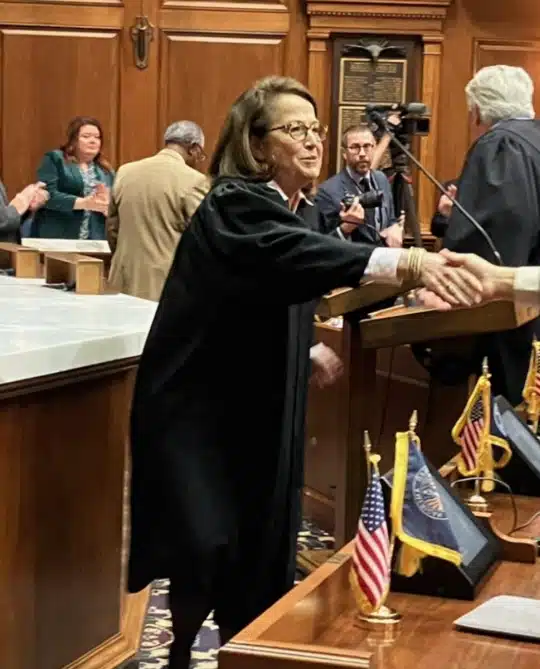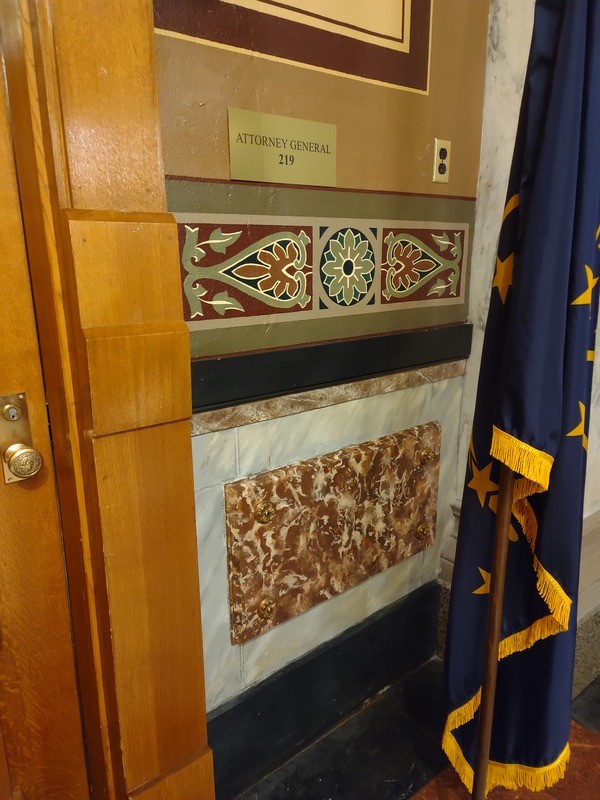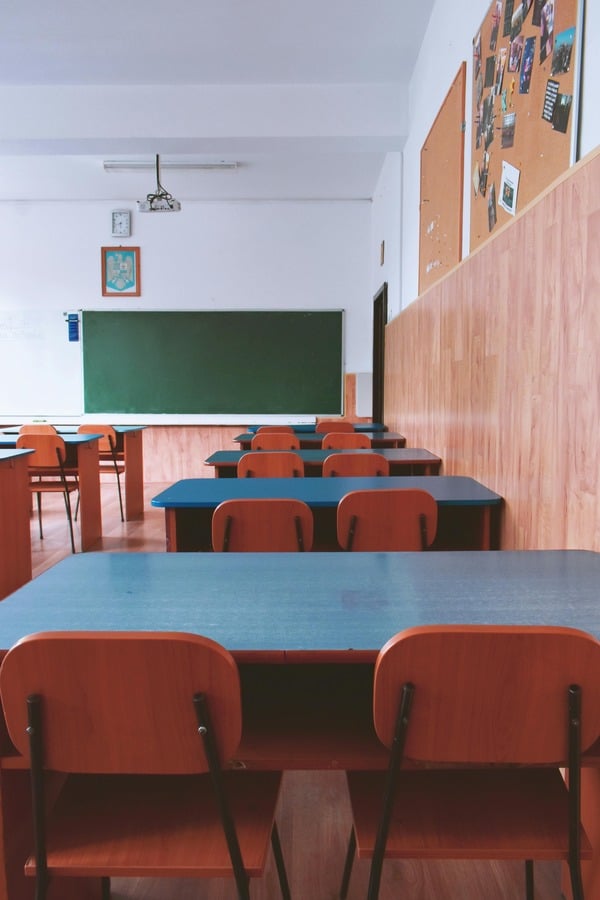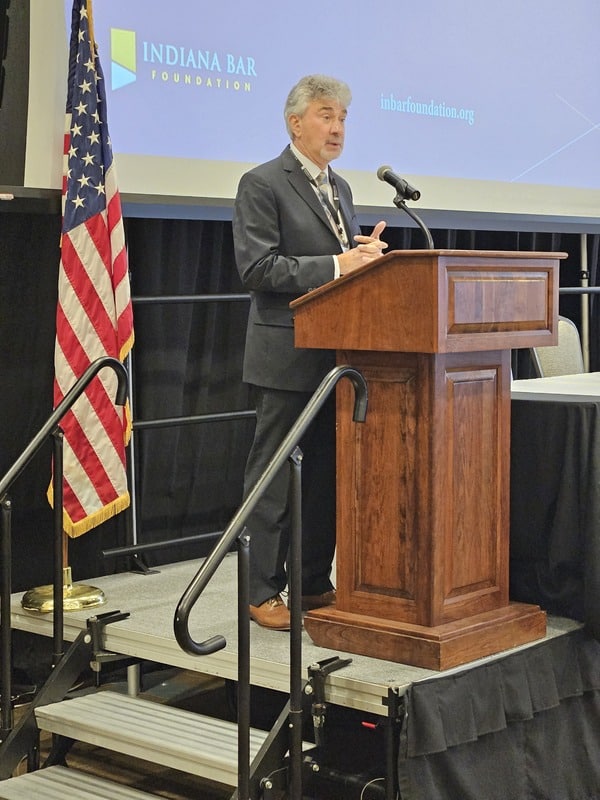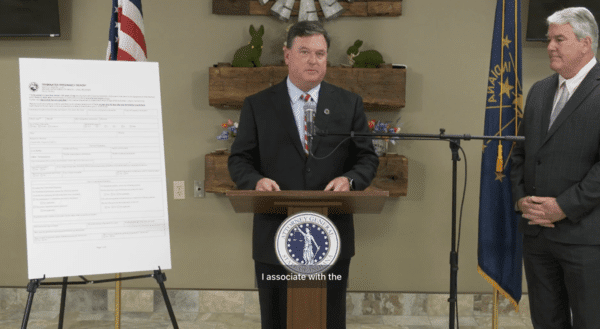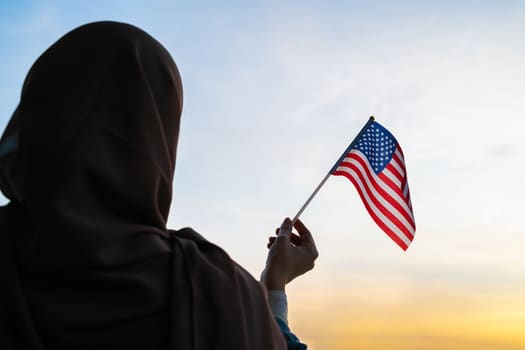The 2.5 million cases pending in Indiana courts inhibiting a safe, economically strong community are a priority for the state’s highest court, Chief Justice Loretta Rush (above) said Wednesday in her annual State of the Judiciary address.
“The sooner a person can get before a judge and resolve differences and settle disputes, the sooner they can get back to their families and back to work. The same is true for businesses; the labels for efficiency and fairness are paramount in fostering a safe community and strong economy” she said.
The address covered where the judiciary has been, where it sits now and where it intends to be in the near future.
Problem-solving courts are growing in Indiana, Rush said. Eight years ago, the number was just 68, which has jumped significantly to 143. The objective of a problem-solving court is to focus more on rehabilitating individuals willing to seek treatment for addictions or mental illnesses.
Rush quoted Dearborn County Judge John Cleary, who said, “Many of our current treatment court participants are coming to us for help to escape the hell they are living.”
Rush pointed out a special guest in attendance at the speech in the Indiana House chamber, Christopher Bunch, and how a specialized court has changed his life. After graduating from the program, Bunch has been sober for nine years, owns his own construction company and is married with children.
“He commended the veterans court’s rigorous program, which provided value counseling, support and the chance to make amends,” said Rush.
Rush also highlighted how the technological advancements within Indiana’s court systems have impacted the efficiency and timeliness of the citizens it serves.
“In many ways, technology is the engine that enables the vital connection not just for judges but for users,” said Rush.
Last year, 8 million documents were filed electronically, 4 million text messages were sent, 1,500 parties settled their disputes online, and 1 million protection orders were filed in the statewide registry, while Hoosiers had 24/7 access to court documents.
“You might just discover your child had a speeding ticket, as I did, you didn’t know about,” Rush joked.
Rush noted that one-third of Indiana trial bench court judges are considered new. Rush said that there was a time when she stood in a room with a very young chief justice, Randall T. Shepard. She quoted him, saying, “People come to court at a time when their dearest interests are at stake—family, home, job, liberty.”
Rush stated she has the same confidence in the young judges of 2023 as she did in Shepard’s class.
“I have zero doubt in your ability to take us to the next level,” she said.

